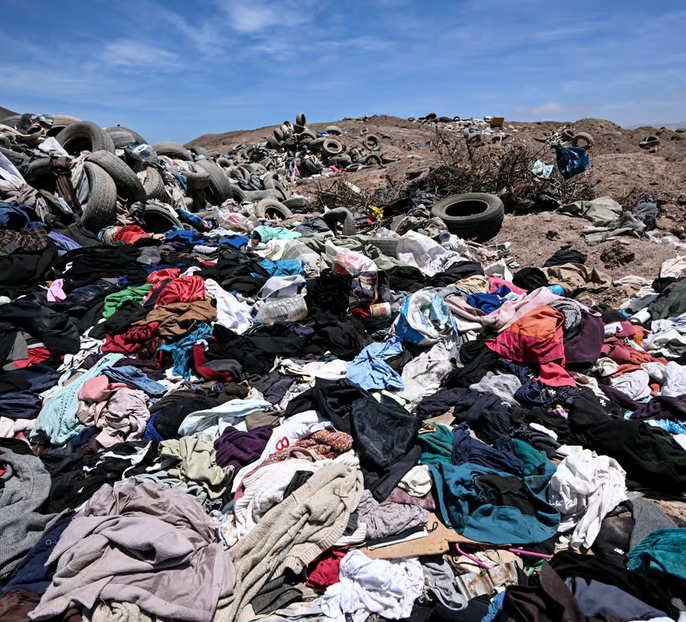
In 2022, this represented 827,000 tonnes, compared with around 715,000 tonnes in 2021, notes Refashion in its latest activity report sent to AFP on Wednesday.
This eco-organisation has been tasked by the public authorities with helping the industry move towards a more circular economy.
Last year, on average, each French person bought 40 items of clothing, 4 pairs of shoes and 5 items of household linen.
The textile sector could account for “26% of global greenhouse gas emissions by 2050 if current consumption trends continue”, as estimated in 2022 by the French Environment and Energy Management Agency (Ademe).
To meet the objectives of the Paris Agreement aimed at limiting global warming, a person living in France should only buy 5 new items of clothing per year, as the NGO Friends of the Earth pointed out earlier this week in its report “When fashion overheats”, targeting the Chinese fast fashion giant Shein by name.
“It is necessary to attack the very system of overproduction, by limiting the volumes of products put on sale”, the NGO recommends.
By forcing brands to be more traceable, providing financial support for organisations involved in the re-use and second life of clothing, encouraging repair, structuring the recycling ecosystem in France, etc., the government has launched a reform of the recycling system. The government has launched a reform of the textile industry that will come into force in December 2022.
The reform is based in particular on the €1 billion in eco-taxes to be paid by producers, importers and distributors over the period 2023-2028, under the “polluter pays” principle.
Last year, some 260,000 tonnes of textiles were collected, i.e. 15,000 tonnes more than in 2021, “a good increase”, notes Refashion, the organisation that collects these eco-taxes.
The main destination countries for textiles collected in France for second-hand import markets are Pakistan (33,000 tonnes exported), Tunisia (30,000 tonnes) and Belgium (27,000 tonnes).
But “almost half of these flows are not traced by Refashion, because they are exported by players who have not signed an agreement” with the eco-organisation, explains the latter.
In recent months, Refashion has developed the new Info-Tri signage for textiles, raised awareness via the #RRRR digital campaign about care and second life, and financed innovative projects, particularly in the field of recycling (AFP).
Read more – Fashion United
